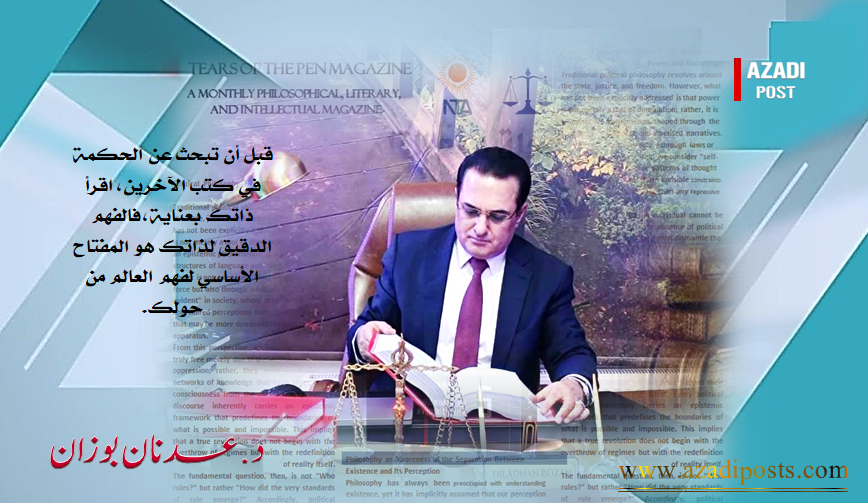
To the Kurdish Political Parties in Syria,
After reviewing the statement regarding the agreement of Kurdish parties about Syria's future and negotiations with Damascus, it is necessary to highlight several points that need correction and clarification from a legal and constitutional perspective, in a way that serves the interests of the Kurdish cause and strengthens the rights of the Kurdish people in Syria.
First: The Ambiguous Clarification of Constitutional Rights
The statement refers to the need for the "constitutional protection of the Kurdish people's rights," but does not specify the clear legal mechanisms to ensure the achievement of this goal. Legally, it is essential to determine how these rights will be practically guaranteed through detailed constitutional provisions, including the necessary amendments to enshrine the cultural, linguistic, and political rights of Kurds in Syria explicitly. These rights should align with international human rights conventions, such as the right to education in their native language and the protection of their culture in all areas of public life.
Second: Overlooking the Specific Legal Recognition of Linguistic and Cultural Rights
The statement mentions the need for the constitution to "recognize the Kurdish people and their national language," but it does not clarify the future Syrian constitution's commitment to fully providing linguistic and cultural rights for Kurds. The legal text should include the need to guarantee the Kurdish language as an official language in areas where Kurds form a majority, including in education, media, and public administration. This should be in line with federal systems recognized in many countries that ensure linguistic rights for minorities.
Third: The Premature Call for Federalism Without Clarifying Legal Consequences
The statement adopts federalism as the basis for governance in future Syria, but does not explain the legal and political consequences of this system on the unity of the Syrian state. Federalism is a complex system that requires precise definitions of the powers of each region within the constitution, while maintaining the unity of the state and preventing fragmentation. The distribution of powers between the central government and regions should be clearly defined, with the executive, legislative, and judicial powers outlined in a way that guarantees the rights of all Syrian components without exception. The statement should clarify whether it means true federalism and consider the legal guarantees that ensure this system.
Fourth: Diplomatic Language and International Pressure
The statement mentions that the agreement was under American-French sponsorship, reflecting a certain political balance between international parties. However, the issue of international pressure on Damascus in case of non-compliance with the agreement was not addressed. Legally, it is essential to emphasize the need for international monitoring mechanisms to ensure the implementation of this agreement. These mechanisms should involve the United Nations or other international organizations in monitoring the rights outlined in the agreement. The agreement should not be non-binding at the international level but must include clear implementation guarantees.
Fifth: Lack of Clarity on the Negotiation Mechanism
The statement discusses the formation of a unified delegation from the Kurdish parties to negotiate with Damascus, but does not specify the legal mechanism through which the Kurdish people will be represented in the negotiations or the method by which this delegation will be chosen. It is crucial to define clear democratic and legal procedures for selecting the negotiating delegation, ensuring that it fairly and legitimately represents all Kurdish political forces, with the inclusion of women, youth, and other groups that may be part of the political process.
Sixth: Emphasis on Political Decentralization, Not Federalism
From a legal perspective, it is important to distinguish between political decentralization and federalism. In a decentralized system, the central government remains strong while delegating some powers to local governments. In a federal system, power is shared between the central government and regional governments in a more balanced way. The statement should clearly define whether the proposed system is truly federal, and therefore, it should include legal guarantees for federalism with a clear division of powers to ensure that it does not affect the unity of the state.
Conclusion
The statement addresses several important points regarding the future of Kurds in Syria, but it requires significant improvements in legal language, clarification of implementation mechanisms, and the establishment of international guarantees to ensure the implementation of the agreement. The statement should include clear legal provisions that define how Kurdish rights will be incorporated into the Syrian constitution and ensure their active participation in future political and constitutional institutions. Additionally, it should address the democratic mechanisms for selecting the Kurdish delegation and further clarify the impact of the federal system on Syria's unity in more detail.
March 25, 2025
Dr. Adnan Bozan